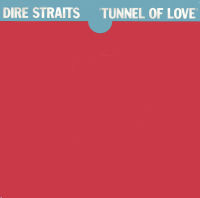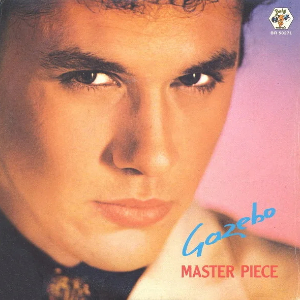Related Research Articles

Paul Mazzolini, known by his stage name Gazebo, is an Italian singer, songwriter, musician and record producer best known for his Italo disco music style during the 1980s. His song "I Like Chopin" reached No. 1 in more than 15 countries, and his debut single "Masterpiece" was also an international success.
Dee D. Jackson is an English singer and musician who was primarily associated with the space disco genre. In the 1970s, she worked as a film producer in Munich before moving into music, working with Giorgio Moroder, Jimmy McShane and Keith Forsey. She is perhaps best known for "Automatic Lover" (1977), the lead single from her concept album Cosmic Curves (1978).

Litfiba was an Italian rock band formed in Florence in 1980. The band evolved from British-influenced new wave rock to a more personal rock sound influenced by Mediterranean vibes; their songs are mostly sung in Italian.

Anna Hoxha, known professionally as Anna Oxa, is an Italian and Albanian singer, actress and television presenter. She has received mainstream popularity and recognition within Italy due to her numerous participations in the Sanremo Music Festival.

Carla Bissi, known professionally as Alice or Alice Visconti, is an Italian singer-songwriter and pianist who began her career in the early 1970s. After releasing three albums by the end of the decade, her breakthrough came in 1981 when she won the Sanremo Music Festival with the song "Per Elisa". This was followed by European hit singles like "Una notte speciale", "Messaggio", "Chan-son Egocentrique", "Prospettiva Nevski" and "Nomadi" and albums like Gioielli rubati, Park Hotel, Elisir, and Il sole nella pioggia which charted in Continental Europe, Scandinavia, and Japan.

Alba Parietti is an Italian television presenter, television personality, showgirl, actress and former singer.

"Tunnel of Love" is a song by the British rock band Dire Straits. It appears on the 1980 album Making Movies, and subsequently on the live albums Alchemy and Live at the BBC and the greatest hits albums Money for Nothing, Sultans of Swing: The Very Best of Dire Straits, and The Best of Dire Straits & Mark Knopfler: Private Investigations. The song was also featured in the 1982 Richard Gere film An Officer and a Gentleman and was included in the film’s accompanying soundtrack album.

883 was an Italian pop group active from 1991 to 2003.

"Call Me" is a song by Italian singer Spagna, released in 1987 as the second single from her debut studio album, Dedicated to the Moon (1987). The music video for the song was filmed in and around Nottingham, England. The majority of the video was filmed in and around the Ritzy nightclub, with the nearby Belvoir Castle also featuring.

Park Hotel is the eighth studio album by Italian singer-songwriter Alice, released in late 1986 on EMI Music.

Kusamakura is a compilation album by Italian singer-songwriter Alice, released in Japan in 1988 on EMI Music/Odeon Records. The album's title translates as Grass Pillow.

Dori Ghezzi is an Italian singer who was active as a recording artist between 1966 and 1989. In the 1970s, Ghezzi worked mainly in a duo with American singer Wess, and the couple represented Italy in the 1975 Eurovision Song Contest.

"Key Key Karimba" is a song by Italo disco act Baltimora, released in 1987 as the lead single from their second and final studio album Survivor in Love. The song was written and produced by Maurizio Bassi.

Claudio Cecchetto is an Italian record producer, deejay, musician, and talent scout.

I Camaleonti are an Italian pop group from Milan, mostly successful between the late 1960s and the early 1970s.
Flavia Fortunato is an Italian singer, actress and television presenter. She was primarily associated with the Italo disco genre during the 1980s, and was a competitor in the Sanremo Music Festival.

Letizia Oliva, known professionally as Tiziana Rivale, is an Italian singer primarily associated with the Italo disco style. In 1983, she won the Sanremo Music Festival with the song "Sarà quel che sarà".

"Masterpiece" is the debut single by Italian singer Gazebo, released in 1982, under the label Baby Records. The song was written by Mazzolini, Paul Micioni and Pierluigi Giombini, and produced by Paul and Peter Micioni and Roberto Fusar Poli. It reached the top 10 in Italy, peaking at No. 2. The song also charted in Switzerland and West Germany, peaking at No. 5 and No. 35, respectively.
The Targa Tenco is a prize awarded annually by the Club Tenco. Founded in 1984, it has a large jury of 200 journalists and critics awarding the best works of the year. It is considered the most prestigious award in Italian music.
References
- 1 2 Dario Salvatori (1989). Storia dell'Hit Parade. Gramese, 1989. ISBN 8876054391.
- ↑ Daniele, Michele (2006-05-07). "Successi 1986". Hit Parade Italia (in Italian). Archived from the original on 2024-01-18. Retrieved 2024-02-29.
- ↑ Daniele, Michele (2006-05-07). "Successi 1987". Hit Parade Italia (in Italian). Archived from the original on 2018-03-23. Retrieved 2024-02-29.